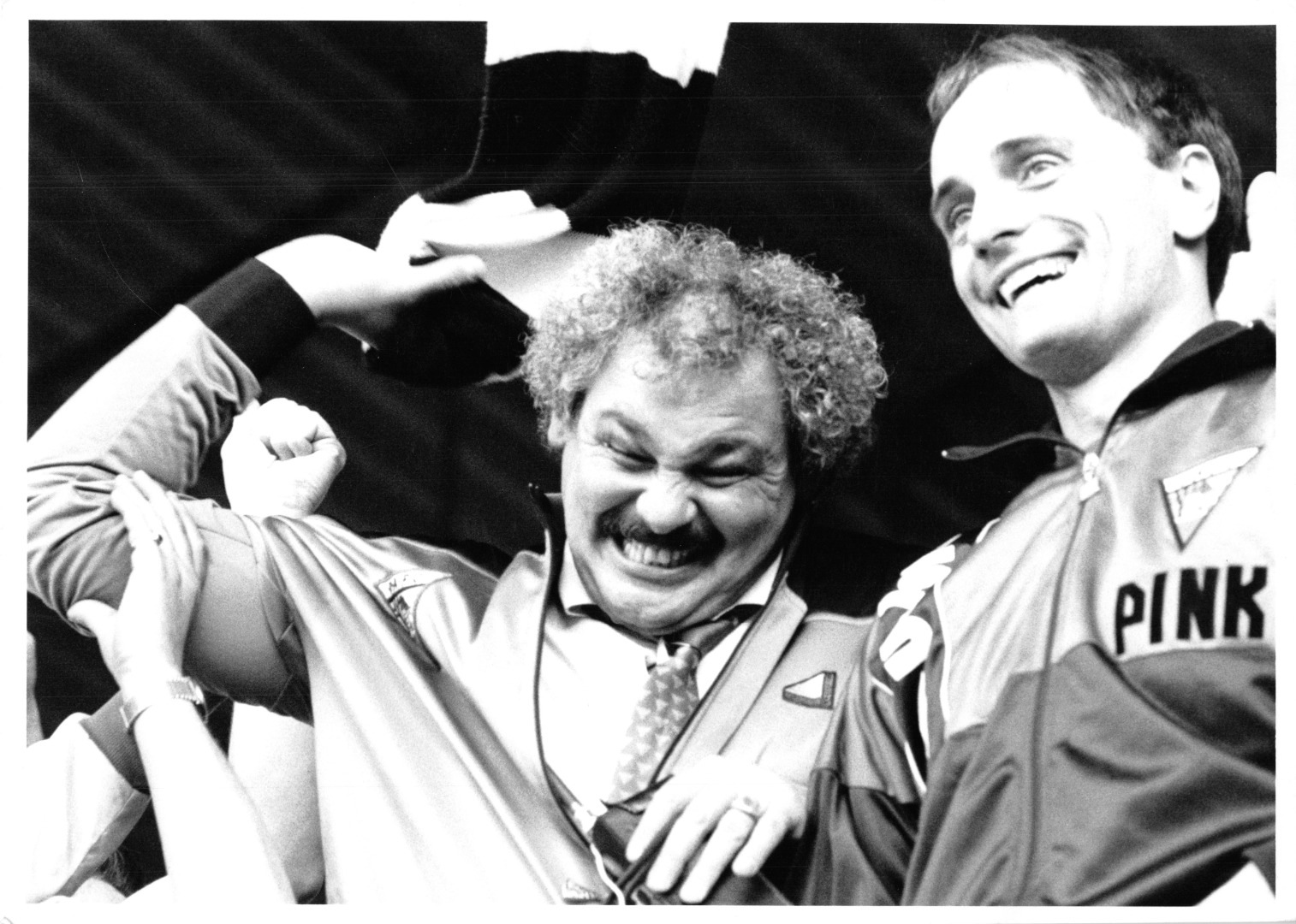Archives | Jim Leishman 1983-1990
Although there were 39 other applicants for the job, Jim`s passion and commitment led to his appointment on a permanent basis, the first part-time manager of the club since the war and the youngest in Dunfermline`s history.

Although there were 39 other applicants for the job, Jim`s passion and commitment led to his appointment on a permanent basis, the first part-time manager of the club since the war and the youngest in Dunfermline`s history. On the evening of 8th November 1989 a 1-1 draw at Motherwell saw Dunfermline Athletic reach the top of the Premier League for the first and so far only time. While many people had a hand in that little piece of club history, it would never had happened without the massive contribution made by Jim Leishman, whose appointment as manager six years earlier heralded a truly remarkable turnaround in the fortunes of the Pars.
Born in Lochgelly on 15th November 1953, Jim joined the Pars on `S` forms in 1968 and was capped at schoolboy and youth level before signing as a professional in the summer of 1971. Later that year he made his senior debut against Ayr United and became a regular member of the young side that gained promotion in 1972/73. Jim was tipped for a great future in the game when, at East End Park on 21st August 1974, his right leg was broken in three places after a terrible collision with Hearts` Jim Jefferies.
Over the next two years Jim made only one further appearance for the Pars as it became clear that a comeback was not going to happen. After short spells with Cowdenbeath and in junior football, he dropped out of the game for a while, returning first as manager of Kelty Hearts and then as a coach at Central Park before Pat Stanton brought him back to Dunfermline as youth coach in the summer of 1982.
Jim stepped up to coach the reserve team under Tom Forsyth and took over as caretaker manager when Forsyth resigned in October 1983. Although there were 39 other applicants for the job, Jim`s passion and commitment led to his appointment on a permanent basis, the first part-time manager of the club since the war and the youngest in Dunfermline`s history.
Aware that he had the basis of a good squad, Jim brought the best out of his players with his tremendous motivational ability while the likes of Norrie McCathie, Steve Morrison and Bobby Forrest benefited from a change in position. New signings such as John Watson, Ian Westwater and Dave Young strengthened the team and despite narrowly missing out on promotion in 1984/85, the Pars won the Second Division title the following season, playing with a blend of skill and confidence not seen at East End in years.
Dunfermline then surprised Scottish football by stepping straight up to the Premier League for the first time in 1987 and although it was only for one season, the lessons learned were crucial and the club bounced right back to win the First Division in 1988/89.
Jim`s superb public relations skills and the quality of players like Istvan Kozma and George O`Boyle brought the crowds rolling back to East End, the average of almost 11,000 a far cry from the 1,000 that watched the Pars during his first season. By 1990, however, the joint managerial role with Iain Munro was proving problematical and the board`s gamble of asking Jim to step away from the playing side led to his resignation and a lasting bitterness with a large section of the support.
It was a terribly sad way for it to end but Jim went on to prove his worth at Livingston, guiding the club from the Third Division to third in the SPL before accepting an offer to return to Dunfermline as General Manager in 2003. The dismissal of David Hay saw him step into the breach once again and he helped the Pars avoid relegation in 2004/05 before taking the club to the CIS Cup Final in March 2006.
Later that year Jim decided to call it a day, moving back upstairs to boardroom level where he still puts his heart and soul into Dunfermline Athletic FC.
Related Stories
views: 3,073
